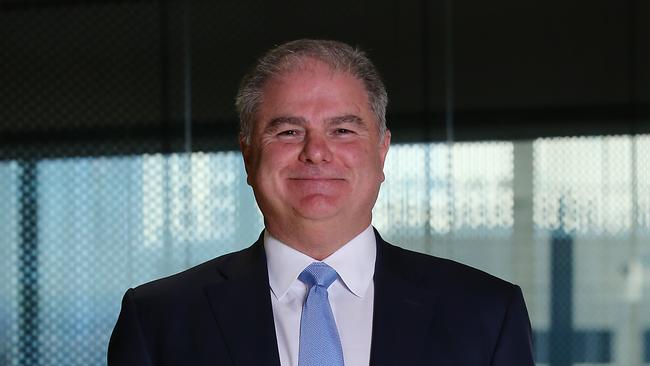Magellan’s board flagged concerns about CEO Brett Cairn’s management style before exit
Concerns about Brett Cairns’ management style were raised with him by Magellan Financial’s board shortly before his departure for ‘personal reasons’.

Magellan Financial’s board raised concerns about Brett Cairns’ management style with the company’s chief executive shortly before his departure for “personal reasons”.
His exit from the company on December 6 came as a surprise to the market, with the well-regarded Mr Cairns a fixture at Magellan for more than 13 years including for a time as chairman.
Magellan is yet to appoint a new permanent chief executive.
The Australian has confirmed concerns among directors of Magellan about Mr Cairns’ management style, despite the absence of any formal complaints from staff. At the time, Magellan said Mr Cairns was departing for “personal reasons” although he had been considering his position for some time.
Both Magellan and Mr Cairns – who has signed a nondisclosure agreement – declined to comment.
Mr Cairns’ departure led to intensive market speculation about fractures in his relationship with Hamish Douglass, Magellan’s founder and the group’s current chairman. On December 7, a Magellan spokesman told The Australian that there had been “no falling out between” the two men and “Brett Cairns’ departure was in no way related to Hamish Douglass or their relationship”.
The tumult, and the subsequent disclosure that Mr Douglass has separated from his wife Alexandra – any split in the assets could create a liquidity event for Magellan – has led to concerns that some of the $116bn fund management company’s largest clients could decide to pull their mandates.

On Monday, Magellan said British wealth manager St James’s Place would pull its mandate, Magellan’s largest, worth around $23bn. Shares fell 33 per cent, although they recovered four per cent on Tuesday to close at $20.51. They had traded as high as $56 earlier in the year.
Equities analysts have warned that the loss of St James’s Place will place additional pressure on other institutional investors and on fees being charged to the company’s retail investors.
“Almost 70 per cent of the remaining (funds under management) is from (institutional) clients, largely from outside Australia, and is at risk of lumpy outflows in our view,” wrote Morgan Stanley analyst Andrei Stadnik in a note to clients. “We also think this puts pressure on MFG’s retail base fees, which are some of the highest among peers.”
Magellan’s main fund, its global equities strategy, has underperformed its benchmark by 3.2 per cent in the three months to November, and by more than 14 per cent over the year.
Macquarie equities researchers estimate the St James’s Place mandate represented some 12 per cent of the company’s annual revenues, and its loss would cut $65.5m from net profit. After St James’s Place, Magellan’s largest mandate only generates 3.5 per cent of total management fees.
The four largest remaining institutional mandates are collectively of a similar size to St James’s Place.
“Following recent events, we now forecast $9bn of outflows in (the six months to June 30, 2022) reducing to $3.6bn in (the 2023 financial year) as Magellan still has $63bn of institutional mandates, which are most at risk,” Macquarie’s Brendan Carrig wrote.
“Following the loss of their largest mandate Magellan’s negotiating position is much weaker with any existing clients who may look to terminate their mandates.
“We now anticipate an increase in fee pressure as more competitive pricing will need to be offered to limit net outflows.
“This is unlikely to come through a repricing of existing (funds under management in the retail/wholesale channel, however we now expect to see an increased pricing differential between the front and back book for Magellan.”
The Australian earlier this month reported that Magellan had begun to quietly offer significantly lower fees to wealth managers after resisting those demands for years.
At the time, Magellan’s general manager of distributions Frank Casarotti denied the lower fee structure was a discount, and said the company had decided there was growth in managed platforms.
“For some years we have been asked to drop fees for managed ¬accounts,” Mr Casarotti said.
“We’ve been looking at this for years and the reticence around the retail investor is (unrelated and) very much around the relative underperformance.
“We are laser-like in its target market (which is) the true managed account operator.”
Internally, Mr Douglass is urging calm and told staff in a memo on Monday that he had “great confidence that our team and process will stand the test of time”.
“Notwithstanding our prudent approach, it is natural for the media and investors to compare us to the market-standard global equity benchmark, the MSCI World,” he wrote.
“We have been closed to new institutional mandates for many years and this will enable us to reopen our global strategy to the institutional market in the years ahead,” Mr Douglass added, referring to the departure of St James’s Place on Monday.
“This will of course take some time.”




